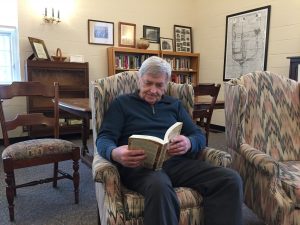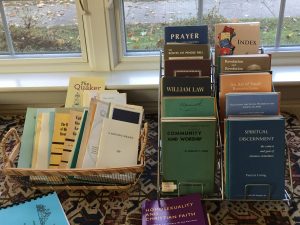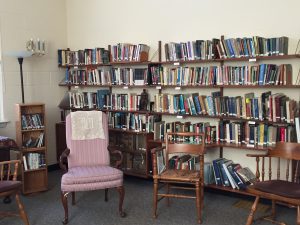


Recommended Reading
If you are interested in learning more about Quakerism, we recommend the following works, some of which are available from our library:
Friends for 350 Years by Howard H. Brinton. This is the updated edition of Brinton’s classic overview of basic Quaker understandings, practices, and history. Topics covered include the Light within, meeting for worship, vocal ministry, reaching decisions, the meeting community, the meeting and the world, and the four periods of Quaker history (now updated to include the last 50 years).
The Quakers in America by Thomas Hamm. This multifaceted book is a concise history of the Religious Society of Friends; an introduction to its beliefs and practices; and a vivid picture of the culture and controversies of the Friends today.
The Journal of George Fox. This autobiography of one of the founders of the Quaker movement describes his spiritual journey from the time he was a young boy, through his spiritual crisis at the age of nineteen, and the development of his own understanding of God and interpretation of the Bible, laying the basis for the Religious Society of Friends.
The Journal of John Woolman. John Woolman is best known for his role in convincing others in the Religious Society of Friends to withdraw from the slave trade and stop holding slaves. Woolman also contributed insights into the nature of war and conflict, wealth and simplicity, right livelihood, and spiritual humility.